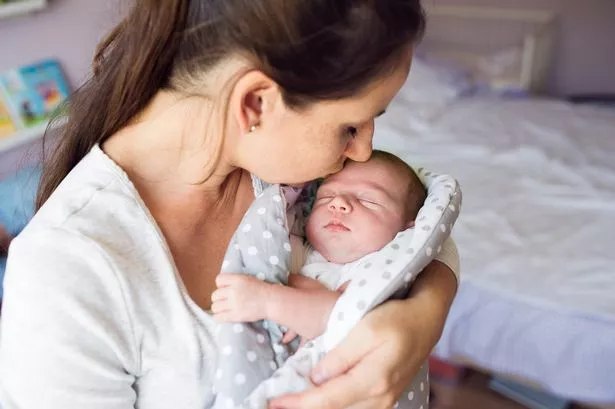Families with newborns in the Bristol region were “abandoned at a time of need” during the pandemic, health chiefs have admitted. Bosses at health and care provider Sirona told a council meeting that the Government’s emergency measures to redeploy most health visitors away from new parents and into adult services was the “wrong decision” that would never be repeated.
The issue was highlighted by Healthwatch South Gloucestershire which gathered firsthand accounts from 118 mums in the district who gave birth between 2020-22 as well as from service providers. Parents described their experiences as “pot luck”, with many feeling unsupported, including those suffering with depression, the patient watchdog’s report said.
Sirona head of public health nursing Nikki Lawrence told South Gloucestershire Council health scrutiny committee that it had been a mistake to temporarily change the roles of more than two-thirds of health visitors, who take over from midwives to care for families a couple of weeks after babies are born. She said: “The national learning about redeployment – we have reflected on it, the Government has reflected on it and they have agreed it was the wrong decision to make.
Read more: Three-quarters of parents worry about impact of pandemic on their child's development
“We basically abandoned families at a time of need, and that decision will never, ever be taken again, from what I’ve been told. In hindsight it was the wrong decision to make, and as your report showed, it did have a detrimental impact on families and we really regret that, but it was out of our hands.”
Ms Lawrence, who is responsible for NHS health visitors in Bristol, North Somerset and South Gloucestershire (BNSSG), said: “During the covid pandemic it was the Department of Health’s directive to stop the Healthy Child programme which is what health visitors deliver to families. Seventy per cent of our staff in health visiting were redeployed into adult services, leaving just 30 per cent.
“So we concentrated on phoning families for antenatal contact, before the baby was born, and also for that new birth visit. The role of health visitors is to support parenting and provide holistic assessments and then refer and signpost on, but the issue for us during the pandemic was there were no services to refer on to.
“Mothers For Mothers, Bluebell, our usual routes of support didn’t exist anymore or were working in a very reduced way. So I’m absolutely delighted to say we have returned to full face-to-face visiting and we are going through a very ambitious transformation to embed service users’ voices in our programme and to make it a much more responsive service.
“We are delivering an enhanced health visiting service which will provide enhanced support – more than 25 visits over two years for families at risk of poor outcomes.” Kingswood ward Labour Cllr Andrea Reid told the meeting on Wednesday, July 27: “We understand why it happened but all of us are aware that it did cause increased risk for families who weren’t getting that support.
“We are all aware of the increased domestic violence stats as a result of the pandemic and how families would have been placed at risk. We are all aware that that risk is increased around pregnancy and just after birth and that these families would have been living under this without the support.
“So while I understand why it happened and how it came about, can you reassure me that those families in most need have now been identified and given the support that they need?” Ms Lawrence replied: “I can say as much as possible we are identifying our families at greater risk.
“There is a limit – we are very reliant on information that comes to us about this, for example, domestic violence reports.” Healthwatch projects officer Anna King said they teamed up with support organisations Mothers For Mothers and Maternity Voices Partnership to conduct the research.
She said one in five women experienced a perinatal mental health problem. Ms King said: “Experiences were varied, good practice was in evidence but support was described as ‘pot luck’.
“Some of the quotes were: ‘I haven’t spoken to a health visitor since my son was four months and this call was about three minutes long purely on weaning.’ ‘I was suffering depression – we were first-time parents during a pandemic with people not able to visit. We felt abandoned’." The report made a series of recommendations including ensuring first-time appointments are in person, mandatory training in mental health for health visitors and providing clear explanations about the transition from midwifery care to health visiting.
Read next:
East Bristol has lost most pharmacies in England since 2016
Covid-19 cases in Bristol continue to rise as one in 22 have virus
Ambulance service at 'black alert' in Bristol as 'heatwave pressures' blamed
POLITICS: To keep up to date with latest Bristol politics news, and discuss thoughts with other residents, join our Bristol politics news and discussion here. You can also sign up to our politics newsletter here .
Click here for the latest headlines from in and around Bristol.




















